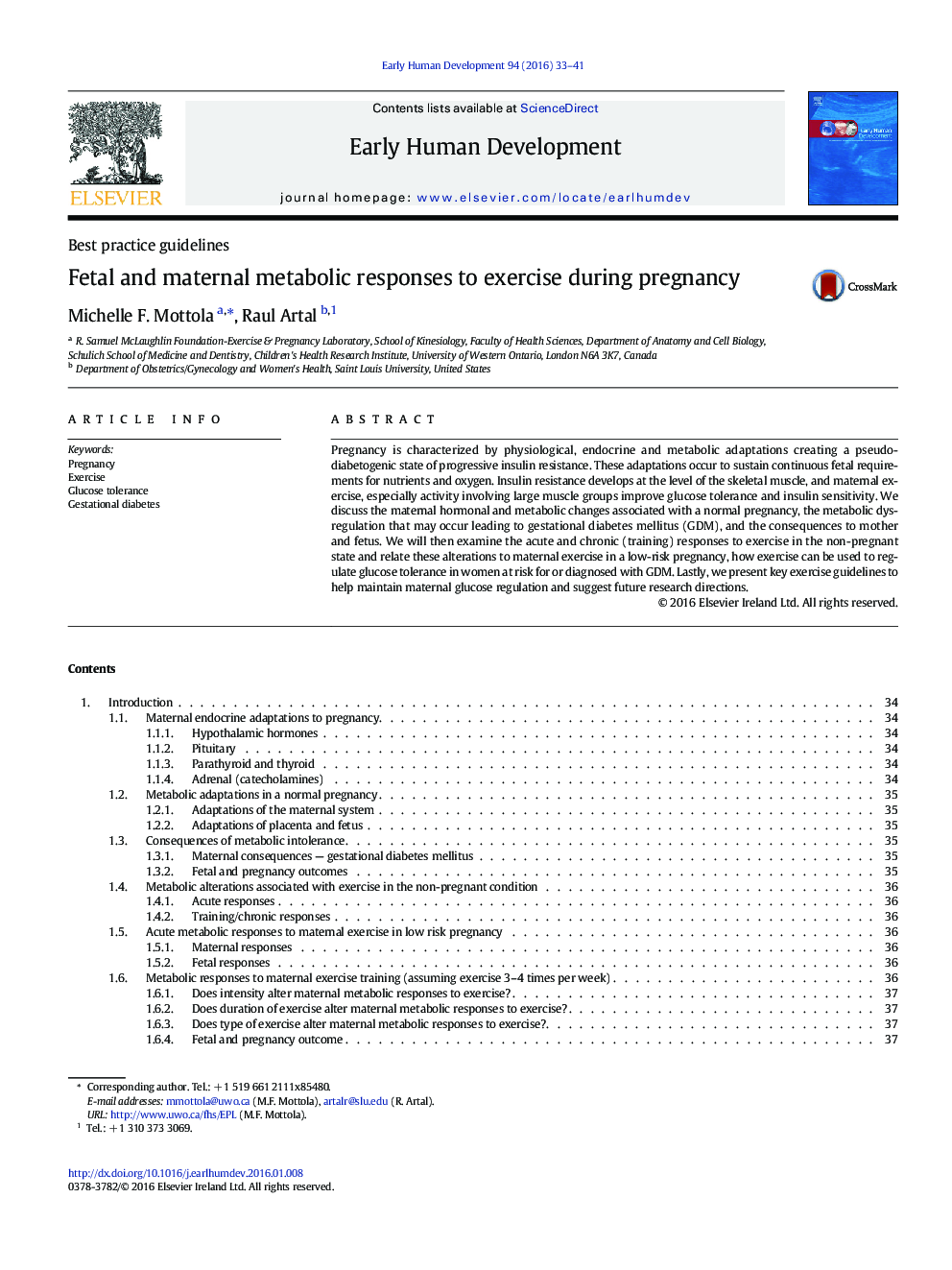| Article ID | Journal | Published Year | Pages | File Type |
|---|---|---|---|---|
| 3916481 | Early Human Development | 2016 | 9 Pages |
Pregnancy is characterized by physiological, endocrine and metabolic adaptations creating a pseudo-diabetogenic state of progressive insulin resistance. These adaptations occur to sustain continuous fetal requirements for nutrients and oxygen. Insulin resistance develops at the level of the skeletal muscle, and maternal exercise, especially activity involving large muscle groups improve glucose tolerance and insulin sensitivity. We discuss the maternal hormonal and metabolic changes associated with a normal pregnancy, the metabolic dysregulation that may occur leading to gestational diabetes mellitus (GDM), and the consequences to mother and fetus. We will then examine the acute and chronic (training) responses to exercise in the non-pregnant state and relate these alterations to maternal exercise in a low-risk pregnancy, how exercise can be used to regulate glucose tolerance in women at risk for or diagnosed with GDM. Lastly, we present key exercise guidelines to help maintain maternal glucose regulation and suggest future research directions.
